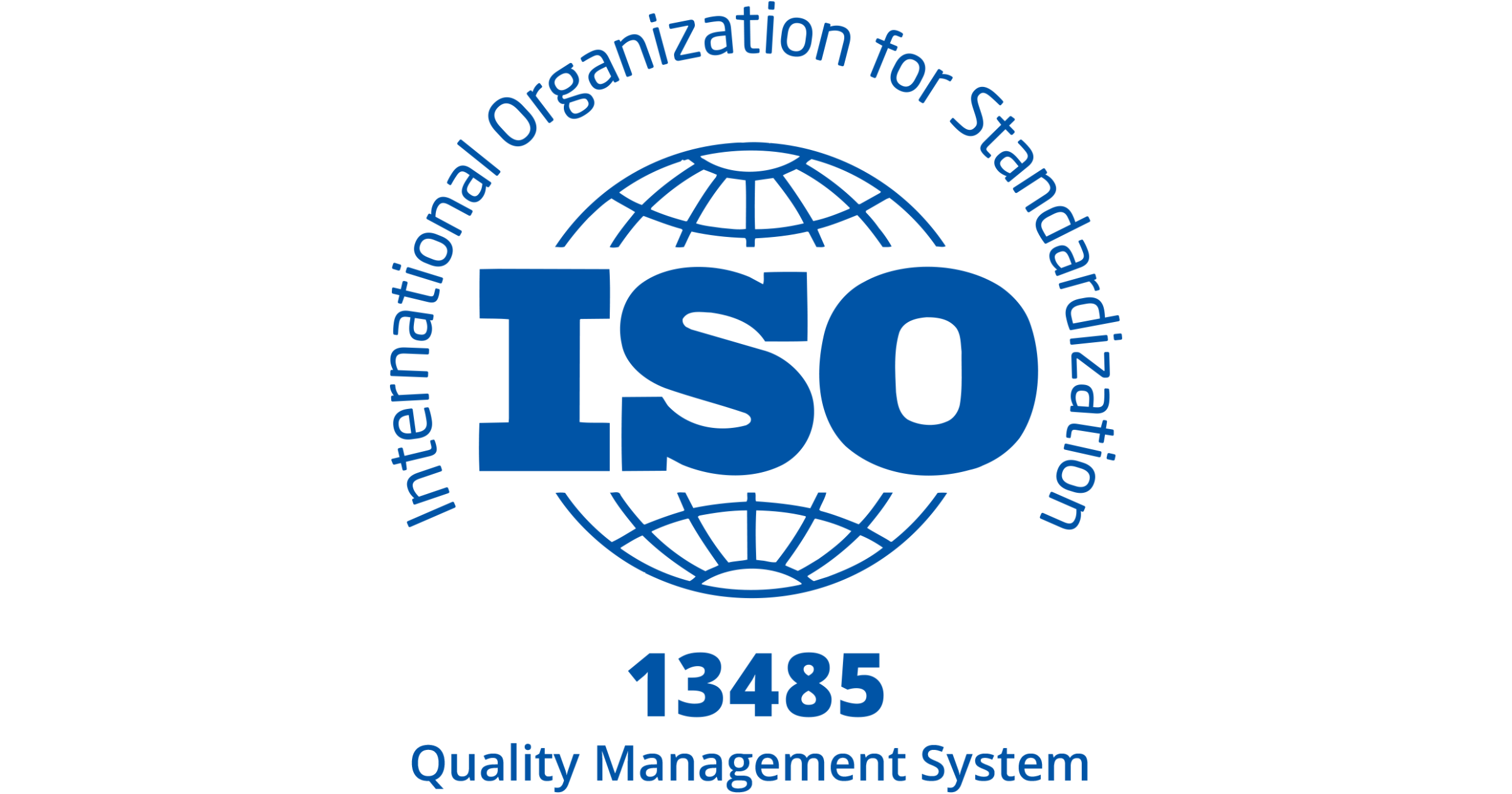Premium CNC Machined Parts for Medical Services
ISO 13485 Certified Precision Medical Device Manufacturing with Biocompatible Materials and Advanced Quality Control
Comprehensive Medical CNC Machining Services
We specialize in precision CNC machined parts for medical devices, surgical instruments, implants, and prosthetics with the highest quality standards and regulatory compliance.
Surgical Instruments
Precision manufacturing of scalpels, forceps, retractors, and specialized surgical tools with exact specifications and sterile requirements.
- Complex geometries
- Sharp cutting edges
- Corrosion resistance
Implants & Prosthetics
Biocompatible implants, orthopedic devices, and prosthetic components manufactured from titanium and medical-grade materials.
- Titanium Grade 2 & 5
- Surface treatments
- Custom geometries
Medical Device Components
Precision components for diagnostic equipment, monitoring devices, and life-support systems with strict tolerances.
- Electronic housings
- Sensor components
- Fluid handling parts
Advanced Medical Manufacturing Capabilities
Our state-of-the-art CNC machining capabilities enable us to produce the most complex medical components with unparalleled precision. From prototype development to full-scale production, we maintain the highest quality standards throughout the manufacturing process.

Medical CNC Manufacturing Process
Our comprehensive manufacturing process ensures every medical component meets the strictest quality standards and regulatory requirements.
Design & Engineering
CAD/CAM design optimization and DFM analysis for medical device manufacturing
Material Selection
Biocompatible materials selection including titanium, stainless steel, and medical polymers
Precision Machining
5-axis CNC machining with Swiss precision for complex medical geometries
Quality Control
ISO 13485 compliant inspection and documentation with full traceability

Precision Medical Manufacturing
Our advanced CNC machining centers are specifically configured for medical device manufacturing, featuring temperature-controlled environments, vibration isolation, and contamination control to ensure the highest precision and cleanliness standards.
Micro-Machining Capabilities
Features down to 0.001" with surface finishes to Ra 0.1μm
Cleanroom Environment
ISO Class 7 cleanroom manufacturing for sterile components
Complete Documentation
Full material traceability and inspection reports
Biocompatible Materials for Medical Applications
We work with the finest biocompatible materials to ensure safety, durability, and optimal performance in medical applications.

Titanium Alloys
Grade 2 & Grade 5 ELI
Exceptional biocompatibility, corrosion resistance, and strength-to-weight ratio for implants and surgical instruments.
- Ti-6Al-4V ELI for implants
- CP Titanium Grade 2
- Excellent osseointegration
- MRI compatible

Stainless Steel
316L & 316LVM
High-grade stainless steel with superior corrosion resistance and mechanical properties for surgical instruments.
- 316L low-carbon grade
- 316LVM vacuum melted
- Superior corrosion resistance
- Autoclave sterilizable

Medical Polymers
PEEK, PTFE, POM
High-performance medical-grade polymers for lightweight, non-metallic medical device components.
- PEEK for spinal implants
- PTFE for low friction
- POM for precision gears
- Gamma sterilizable
Material Testing & Certification
All medical materials undergo rigorous testing and certification to ensure compliance with FDA, ISO 10993, and USP Class VI standards. Our material certificates provide complete traceability from raw material to finished component.
Biocompatibility Testing
- • Cytotoxicity (ISO 10993-5)
- • Sensitization (ISO 10993-10)
- • Irritation (ISO 10993-10)
- • Systemic toxicity (ISO 10993-11)
Material Certification
- • Mill test certificates
- • Chemical composition
- • Mechanical properties
- • Surface finish verification

Medical Device Applications
Our precision CNC machined components serve critical functions across the entire spectrum of medical applications.
Surgical Instruments
Scalpels, forceps, retractors, surgical clamps, and specialized laparoscopic tools
Orthopedic Implants
Hip and knee replacements, spinal rods, bone screws, and dental implants
Cardiovascular Devices
Stents, valve components, pacemaker housings, and catheter components
Neurological Devices
Neurostimulators, cranial plates, and precision surgical instruments

Precision Surgical Tools
Manufacturing of high-precision surgical instruments with complex geometries and sharp cutting edges. Our tools meet the strictest requirements for sharpness, durability, and corrosion resistance.
- Micro-surgical instruments
- Laparoscopic tools
- Dental instruments
- Ophthalmic tools

Diagnostic Equipment
Critical components for MRI machines, CT scanners, ultrasound equipment, and laboratory analyzers. Precision manufacturing ensures optimal performance and reliability.
- MRI scanner components
- X-ray equipment parts
- Ultrasound transducers
- Laboratory equipment

Prosthetic Components
Custom prosthetic joints, limb attachments, and mobility aids manufactured to exact patient specifications with biocompatible materials and precision engineering.
- Custom prosthetic joints
- Limb attachment systems
- Mobility assistance devices
- Patient-specific implants
Medical Quality Standards & Certifications
Our commitment to quality is demonstrated through comprehensive certifications and adherence to the most stringent medical device manufacturing standards.
ISO 13485
Medical Device QMS
FDA CFR 820
Quality System Regulation
ISO 10993
Biocompatibility Testing
USP Class VI
Plastic Material Testing
ISO 13485 Medical Device Quality Management
Our ISO 13485:2016 certification demonstrates our commitment to consistently providing medical devices and related services that meet customer and applicable regulatory requirements. This comprehensive quality management system ensures every aspect of our manufacturing process meets medical device standards.
Risk Management (ISO 14971)
Comprehensive risk analysis and control throughout the product lifecycle
Design Controls
Systematic approach to design validation and verification
Corrective and Preventive Actions (CAPA)
Continuous improvement through systematic problem resolution

Quality Control & Inspection Process

Incoming Inspection
Complete material verification, chemical composition analysis, and dimensional inspection of raw materials

In-Process Control
Real-time monitoring with SPC, first article inspection, and continuous dimensional verification

Final Inspection
CMM measurement, surface finish verification, and complete documentation package
Advanced Medical Manufacturing Technology
State-of-the-art CNC equipment and manufacturing technology specifically configured for medical device production.
5-Axis CNC Machining
Advanced 5-axis simultaneous machining for complex medical geometries with superior surface finish and dimensional accuracy.
- Complex undercuts and features
- Reduced setup time
- Superior surface finish
Swiss CNC Turning
High-precision Swiss turning for small, complex medical components with exceptional accuracy and surface finish.
- ±0.0001" tolerance capability
- Ra 0.1μm surface finish
- Complex live tooling operations
EDM Processing
Wire and sinker EDM for intricate medical features, micro-holes, and hardened material processing.
- Micro-hole drilling
- Hardened material cutting
- Complex cavity features

Precision Measurement & Quality Control
Our quality control laboratory features the latest coordinate measuring machines, optical measurement systems, and surface finish analyzers to ensure every medical component meets specified requirements.
CMM Measurement
Zeiss coordinate measuring machines with probe accuracy to ±0.0001"
Optical Inspection
High-resolution optical systems for surface and dimensional verification
Surface Analysis
Profilometers and roughness testers for surface finish verification
Material Testing
Hardness testing, composition analysis, and biocompatibility verification
Ready to Start Your Medical Device Project?
Contact our medical device manufacturing experts for a comprehensive consultation and detailed project quote.
Frequently Asked Questions
Common questions about our medical CNC machining services, quality standards, and manufacturing capabilities.
What medical device certifications do you maintain?
We maintain ISO 13485:2016 certification for medical device quality management systems, FDA registration as a medical device manufacturer, and comply with CFR 820 Quality System Regulation. Our facility also holds cleanroom certification to ISO 14644 standards for sterile component manufacturing.
What precision tolerances can you achieve for medical parts?
Our medical CNC machining capabilities include tolerances as tight as ±0.0001" (±0.0025mm) with surface finishes to Ra 0.1μm. We utilize Swiss CNC turning, 5-axis machining, and EDM processes to achieve these precision requirements for critical medical components.
Which biocompatible materials do you work with?
We machine a comprehensive range of biocompatible materials including titanium alloys (Grade 2, Grade 5 ELI), medical-grade stainless steels (316L, 316LVM), medical polymers (PEEK, PTFE, POM), and specialty alloys like cobalt-chrome. All materials come with full material certificates and biocompatibility documentation.
How do you ensure traceability for medical components?
Complete traceability is maintained through our ISO 13485 quality system, including material certificates, process documentation, inspection records, and unique serialization. Each component includes a comprehensive data package with material traceability, dimensional reports, and surface finish verification.
What types of surgical instruments can you manufacture?
We manufacture a wide range of surgical instruments including scalpels, forceps, retractors, surgical clamps, laparoscopic tools, micro-surgical instruments, dental tools, and ophthalmic instruments. Our capabilities include complex geometries, sharp cutting edges, and specialized surface treatments.
Do you provide design for manufacturing (DFM) services?
Yes, our engineering team provides comprehensive DFM analysis to optimize medical device designs for manufacturability, cost-effectiveness, and regulatory compliance. We work closely with design engineers to ensure optimal material selection, dimensional tolerancing, and manufacturing processes.
What is your typical lead time for medical prototypes?
Medical prototype lead times typically range from 5-15 days depending on complexity, material requirements, and inspection needs. Rush services are available for critical projects. Production lead times vary based on quantity and complexity but generally range from 2-6 weeks.
How do you handle cleanroom manufacturing requirements?
Our facility includes ISO Class 7 cleanroom manufacturing areas for sterile medical components. We follow strict contamination control procedures, use medical-grade packaging, and can provide sterile packaging and gamma sterilization services through our certified partners.
What inspection and testing services do you provide?
We provide comprehensive inspection services including CMM dimensional measurement, surface finish analysis, material verification, hardness testing, and biocompatibility testing coordination. All inspection data is provided in detailed reports with full traceability documentation.
Can you handle volume production for medical devices?
Yes, we support both prototype and production volumes from single pieces to hundreds of thousands annually. Our scalable manufacturing processes, statistical process control, and automated inspection capabilities ensure consistent quality at any volume level.
What surface treatments are available for medical components?
Available surface treatments include electropolishing for stainless steel, anodizing for aluminum, titanium surface treatments, passivation, and specialized medical coatings. All treatments are performed by certified suppliers with appropriate documentation for medical device applications.
How do you ensure regulatory compliance for medical parts?
Regulatory compliance is ensured through our ISO 13485 quality management system, FDA registration, adherence to applicable FDA guidance documents, risk management per ISO 14971, and comprehensive documentation. We work with regulatory consultants to ensure all requirements are met for your specific device classification.
